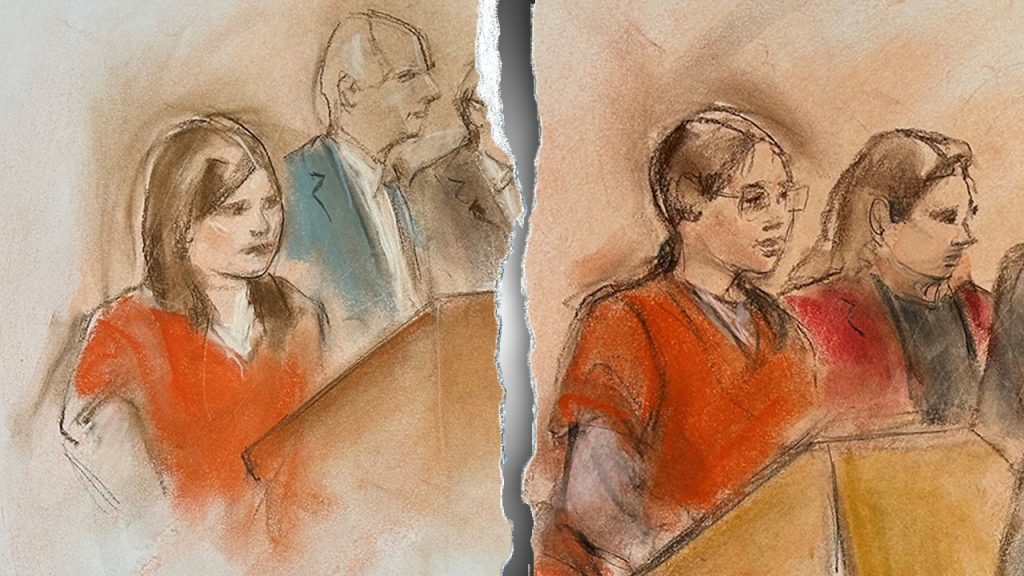Two Chinese nationals, Yunqing Jian, a post-doctoral research fellow at the University of Michigan, and Chengxuan Han, a student from Huazhong University of Science and Technology, face serious federal charges related to the alleged smuggling of biological materials into the United States. They appeared in court amid concerns that their actions present significant national security threats. Both individuals have been ordered to remain in federal custody while their cases proceed through the judicial system.
| Article Subheadings |
|---|
| 1) Background on the Accusations |
| 2) Details of the Charges |
| 3) Court Proceedings Overview |
| 4) Implications for National Security |
| 5) Official Responses and Next Steps |
Background on the Accusations
The case against Yunqing Jian and Chengxuan Han is deeply rooted in concerns regarding national security and biological smuggling. Reports indicate that the pair’s activities date back to August 2022 when they attempted to transport the fungus Fusarium graminearum, recognized as a potential agroterrorism weapon, to the U.S. The pathogen poses serious risks by damaging crops such as wheat and maize, leading to billions in global economic losses while also being harmful to human health if ingested. The FBI apprehended these individuals for alleged conspiracy and smuggling, which unveil troubling questions regarding the integrity of bio-research practices.
Details of the Charges
Both Jian and Han face numerous charges that include conspiracy, making false statements, visa fraud, and smuggling biological materials into the country. The charges were built on evidence gathered from multiple attempts to smuggle dangerous pathogens, including a revelation that Jian was initially funded by the Chinese government for her research. The allegations further detail a disturbing WeChat conversation between Jian and her boyfriend, Zunyong Liu, in which they discussed methods to conceal and transport biological agents. Liu’s involvement intensifies fears regarding coordinated actions tied to state-sponsored agendas and their implications for U.S. safety.
Court Proceedings Overview
During the recent court appearances, both individuals exhibited emotional responses amidst growing anxiety regarding their potential fate. Han, in particular, was observed holding back tears as her preliminary hearing was rescheduled to a later date. Her attorney has publicly stated that she consents to remain in custody without prejudice, reflecting the greater legal strategy at play. The hearings revealed that both Chen and Jian are now in federal custody until their respective cases are revisited, marking a crucial period for both their futures and the legal discourse surrounding biological safety.
Implications for National Security
The legal situation surrounding Jian and Han raises alarming questions about national security vulnerabilities. The actions attributed to these Chinese nationals have been flagged by authorities as posing grave national security concerns. The deputy U.S. attorney handling the case, Jerome Gorgon, affirmed that the alleged smuggling operations involve not only serious threats to public safety but could also be linked to larger geopolitical tensions. Experts argue that the involvement of individuals connected to foreign governments exacerbates these worries, potentially indicating a broader effort to undermine U.S. agricultural integrity and public health.
Official Responses and Next Steps
In the aftermath of the arrests, officials from various U.S. agencies, including the Department of Justice, expressed their commitment to further investigate the circumstances surrounding the biological smuggling. As these legal proceedings unfold, the University of Michigan has stated it will cooperate fully with federal authorities. Both Jian and Han remain in custody under heightened scrutiny that will likely involve content analyses of their electronic devices and further examinations of the materials they attempted to import. Their involvement with facilities at a renowned research institution has prompted a national discussion about regulatory measures governing foreign research collaborations.
| No. | Key Points |
|---|---|
| 1 | Two Chinese nationals face charges for smuggling biological materials linked to national security threats. |
| 2 | The fungus Fusarium graminearum has been classified as an agroterrorism weapon, causing economic losses globally. |
| 3 | The ongoing investigations may unveil greater national and personal security challenges. |
| 4 | The University of Michigan pledges full cooperation with federal investigations. |
| 5 | Next court hearings will be critical in determining the future of the accused. |
Summary
The legal developments concerning Yunqing Jian and Chengxuan Han underscore significant concerns regarding national security within the context of biological research and international cooperation. As authorities work to navigate the complexities of the case, the implications resonate far beyond the courtroom, prompting discussions about regulatory frameworks, public safety, and the integrity of scientific collaboration.
Frequently Asked Questions
Question: What were Yunqing Jian and Chengxuan Han accused of?
They are accused of smuggling biological materials, specifically a pathogen known as Fusarium graminearum, into the United States, which can pose threats to both agriculture and public health.
Question: Why is Fusarium graminearum considered a potential threat?
This fungus can severely damage important food crops and, if ingested, can have serious health impacts on humans and livestock, thus categorizing it as a potential agroterrorism weapon.
Question: What is the current status of Jian and Han’s legal proceedings?
Both individuals are currently in federal custody as their preliminary hearings have been scheduled to take place in the coming weeks, while investigations continue regarding their actions and intentions.
